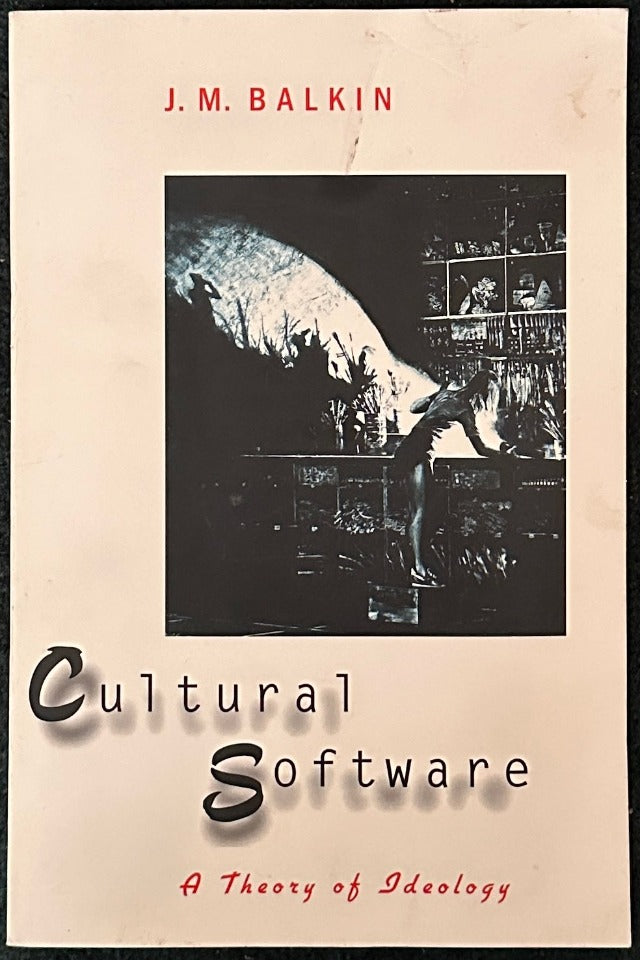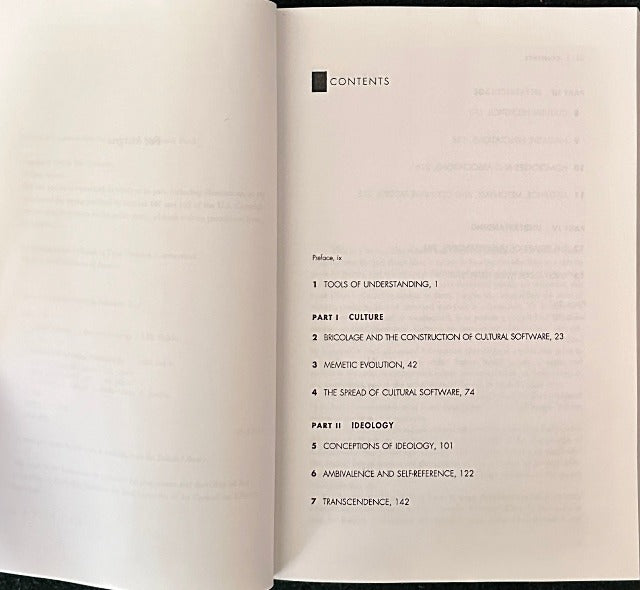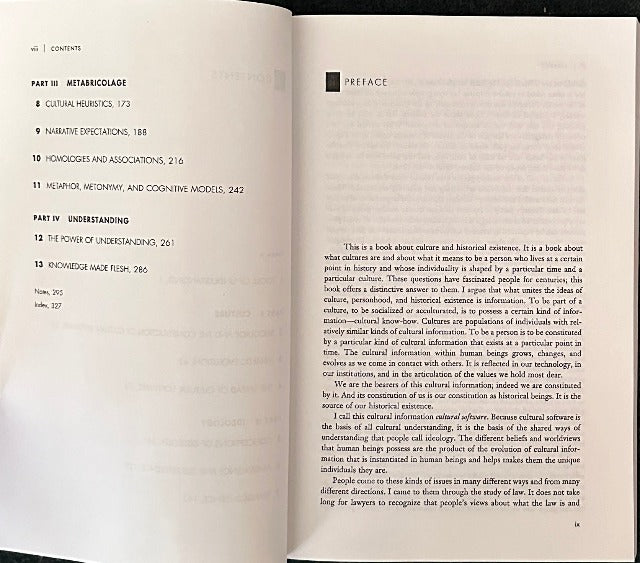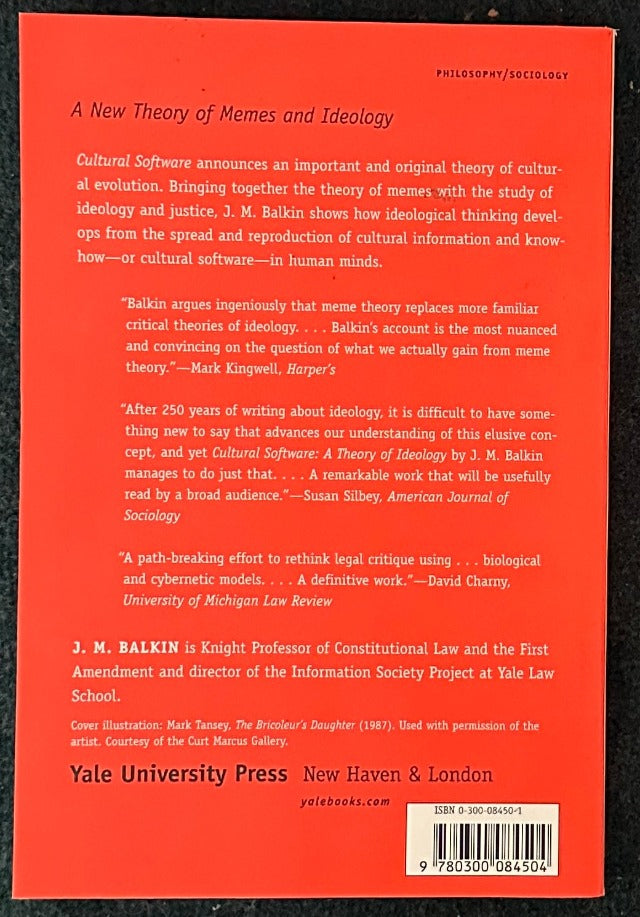1
/
of
4
Cultural Software : a Theory of Ideology
Cultural Software : a Theory of Ideology
Regular price
¥2,000 JPY
Regular price
Sale price
¥2,000 JPY
Unit price
/
per
Tax included.
Shipping calculated at checkout.
Couldn't load pickup availability
イェール大学法学校の法学者であるJ.M.バルキンは、「文化的ソフトウェア」という考えから文化進化論を提唱している。
文化内部で共有される理解、意見の相違、多様性を説明する理論である。人類学、進化論、認知科学、言語学、社会学、政治理論、哲学、社会心理学、法学など、多くの研究分野を駆使して、著者は、文化がどのように成長し、広がっていくのか、どのように共通の理解が生まれるのか、どのように異なる文化の人々が互いの意見を理解し、評価し合えるのかを探求している。文化の進化は、人間の心の中にある文化的な情報やノウハウ、つまり「文化的ソフトウェア」が伝達されることによって起こる、とバルキンは言う。
個人は文化的ソフトウェアを体現し、コミュニケーションや社会的学習を通じてそれを他者に広める。イデオロギーは特殊な思考形態でも病的な思考形態でもなく、文化的ソフトウェアの進化が生み出した産物である、と著者は主張する。
文化的理解とは、新しい問題を解決するために絶えず適応される、古い不完全なツールのパッチワークであるため、人間の理解は正義の追求にとって、部分的には適切であり、部分的には不十分である。バルキンは、イデオロギーの影響の根源と不正義への貢献を照らし出す数多くの例を提示する。彼はまた、多文化主義をめぐる議論にも参入し、異なる世界観を持つ人々の間の相互理解の問題に彼の理論を適用している。文化的理解は超越的な理想を前提とすると主張し、他者に対するイデオロギー的分析とイデオロギー的自己批判の両方がいかに可能であるかを示す。
J.M. Balkin, a law professor at Yale Law School, proposes a theory of cultural evolution based on the idea of "cultural software." The theory explains shared understandings, disagreements, and diversity within cultures. Drawing on many fields of study, including anthropology, evolutionary theory, cognitive science, linguistics, sociology, political theory, philosophy, social psychology, and law, the author explores how cultures grow and spread, how common understandings emerge, and how people from different cultures can understand and appreciate each other's views. They explore. Cultural evolution, Balkin says, occurs through the transmission of cultural information and know-how, or "cultural software," in the human mind. Individuals embody cultural software and spread it to others through communication and social learning. Ideology, the author argues, is neither a particular nor pathological form of thought, but a product of the evolution of cultural software. Because cultural understanding is a patchwork of old, imperfect tools that are constantly adapted to solve new problems, human understanding is partly adequate and partly inadequate to the pursuit of justice. Balkin offers numerous examples that illuminate the roots of ideological influence and its contribution to injustice. He also enters the debate over multiculturalism, applying his theory to the problem of mutual understanding between people with different worldviews. He argues that cultural understanding presupposes a transcendent ideal and shows how both ideological analysis of the other and ideological self-criticism are possible.
J.M. Balkin
Yale University Press
1998
23.4 x 15.8 x 1.6 cm
335 pages
文化内部で共有される理解、意見の相違、多様性を説明する理論である。人類学、進化論、認知科学、言語学、社会学、政治理論、哲学、社会心理学、法学など、多くの研究分野を駆使して、著者は、文化がどのように成長し、広がっていくのか、どのように共通の理解が生まれるのか、どのように異なる文化の人々が互いの意見を理解し、評価し合えるのかを探求している。文化の進化は、人間の心の中にある文化的な情報やノウハウ、つまり「文化的ソフトウェア」が伝達されることによって起こる、とバルキンは言う。
個人は文化的ソフトウェアを体現し、コミュニケーションや社会的学習を通じてそれを他者に広める。イデオロギーは特殊な思考形態でも病的な思考形態でもなく、文化的ソフトウェアの進化が生み出した産物である、と著者は主張する。
文化的理解とは、新しい問題を解決するために絶えず適応される、古い不完全なツールのパッチワークであるため、人間の理解は正義の追求にとって、部分的には適切であり、部分的には不十分である。バルキンは、イデオロギーの影響の根源と不正義への貢献を照らし出す数多くの例を提示する。彼はまた、多文化主義をめぐる議論にも参入し、異なる世界観を持つ人々の間の相互理解の問題に彼の理論を適用している。文化的理解は超越的な理想を前提とすると主張し、他者に対するイデオロギー的分析とイデオロギー的自己批判の両方がいかに可能であるかを示す。
J.M. Balkin, a law professor at Yale Law School, proposes a theory of cultural evolution based on the idea of "cultural software." The theory explains shared understandings, disagreements, and diversity within cultures. Drawing on many fields of study, including anthropology, evolutionary theory, cognitive science, linguistics, sociology, political theory, philosophy, social psychology, and law, the author explores how cultures grow and spread, how common understandings emerge, and how people from different cultures can understand and appreciate each other's views. They explore. Cultural evolution, Balkin says, occurs through the transmission of cultural information and know-how, or "cultural software," in the human mind. Individuals embody cultural software and spread it to others through communication and social learning. Ideology, the author argues, is neither a particular nor pathological form of thought, but a product of the evolution of cultural software. Because cultural understanding is a patchwork of old, imperfect tools that are constantly adapted to solve new problems, human understanding is partly adequate and partly inadequate to the pursuit of justice. Balkin offers numerous examples that illuminate the roots of ideological influence and its contribution to injustice. He also enters the debate over multiculturalism, applying his theory to the problem of mutual understanding between people with different worldviews. He argues that cultural understanding presupposes a transcendent ideal and shows how both ideological analysis of the other and ideological self-criticism are possible.
J.M. Balkin
Yale University Press
1998
23.4 x 15.8 x 1.6 cm
335 pages
Share








